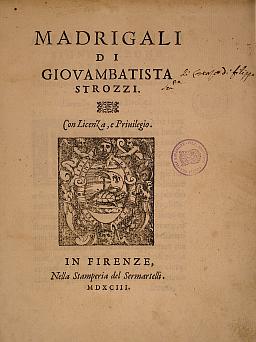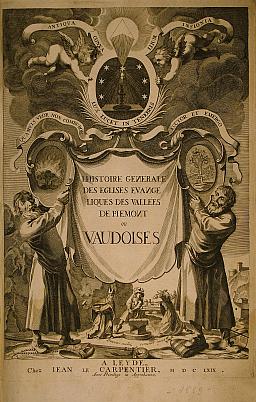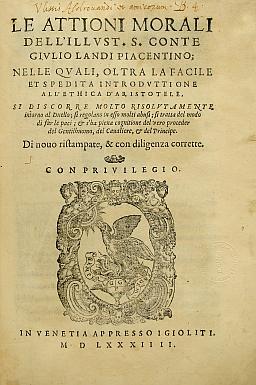
The project
Objectives of this research project
Studying the philosophical literature located in private libraries of philosophers, scientists and scholars in the modern era means entering a field of research which has long been overlooked, but is now of ever-increasing interest, as the recent publications of important libraries—for example those of Schelling and Nietzsche—demonstrates.
Once the catalogues and inventories of libraries have been chosen and made available to scholars, they can be profitably used not only to reconstruct the “material” history of the institutions, but also from a broader perspective to look at the cultural profile of individual authors or of entire periods of intellectual history.
The availability of catalogues of private libraries collected in various countries over the last four centuries could therefore be useful to the scholar who would like:
- to account for an author’s studies, field of interest and competences by working from a list of the author’s books;
- to investigate the circulation and the fortune of an author’s works by widening the analysis to the libraries of subsequent generations;
- to become familiar with the intellectual features of an epoch;
- to study the history of the transformations of private libraries in the passage from one epoch to another, thus contributing to a kind of “sociology of library systems”;
- to register the changes which take place in knowledge systems, in the reciprocal relationships among different disciplines (it could be interesting to explore how the philosophical texts present in the libraries of jurists, linguists, naturalists, etc. evolve);
- to follow the circulation of extraordinarily rare texts or collections of texts.
In many cases, knowledge of private libraries allows the scholar to rectify threadbare interpretations and to remove an author from the clichés of manuals. The document summary of the Greek library of Francesco Patrizi, for example, immediately reveals the intention “of bringing to light, the ‘encyclopaedia’ of Platonic knowledge—in which music, mathematics, poetry, rhetoric and the art of memory occupy central positions beside theology and philosophy—and contrasting it to that of Aristotle” (Muccillo 1993). Analogously, skimming the index of Dilthey’s library clarifies the breadth and articulation of a philosophical reflection assiduously dedicated—despite the proclaimed autonomy of the “humanities”—to keeping dialogue with the natural science of the period alive. And again, Nietzsche’s library testifies, in the variety of the collected texts and of the documented interdisciplinary interests, to an approach with the “patience of the philologist”, extraneous to the “cult of genius” in all its forms, closely connected to the evolution both of positive knowledge and of the many different scientific disciplines.
The catalogues of private libraries in fact represent an orienting basis and a structure of reference and of comparison for the definition and the valuation of the library collections themselves. Thanks to their polyvalent characteristics, these instruments offer scholars the possibility to study in depth and concretely, bringing to light even implicit but sometimes fairly important aspects in the creation of philosophical traditions and fields of research. Certainly researchers cannot disregard enquiries which have been carried out to date within this particular area of study, and with reference to past research, this project intends to provide substantial increase to the knowledge of the catalogue sources.
In particular, in the reconstruction of important philosophical libraries—prevalently through notary deeds or sale catalogues—there is no intention of privileging the moment of the intellectual biography as in historiographic research, nor of offering material of mere erudition. The intention is rather that of expanding the use of the libraries in order to make philosophic historiographic research easier and richer, keeping in mind the growing relevance of research on the history of culture or the history of ideas, or the German "Begriffsgeschichte".
The main objective is to publish materials online which have specific relevance within the theoretical framework mentioned above. This would create an original database of philosophical libraries and of philosophical texts owned by scholars, rendering accessible collections otherwise unavailable, with special advantages for a reconstruction of a cultural history attentive to the circulation of ideas, through an accurate recognition of sources and library collections.
![P. Crinito, De honesta disciplina lib. XXV … [Parigi, Josse Bade], 1511 (biblioteca S.N.S.) P. Crinito, De honesta disciplina lib. XXV … [Parigi, Josse Bade], 1511 (biblioteca S.N.S.)](assets/immagini/progetto/01_Crinito-De_honesta_disciplina-1511.jpg)


